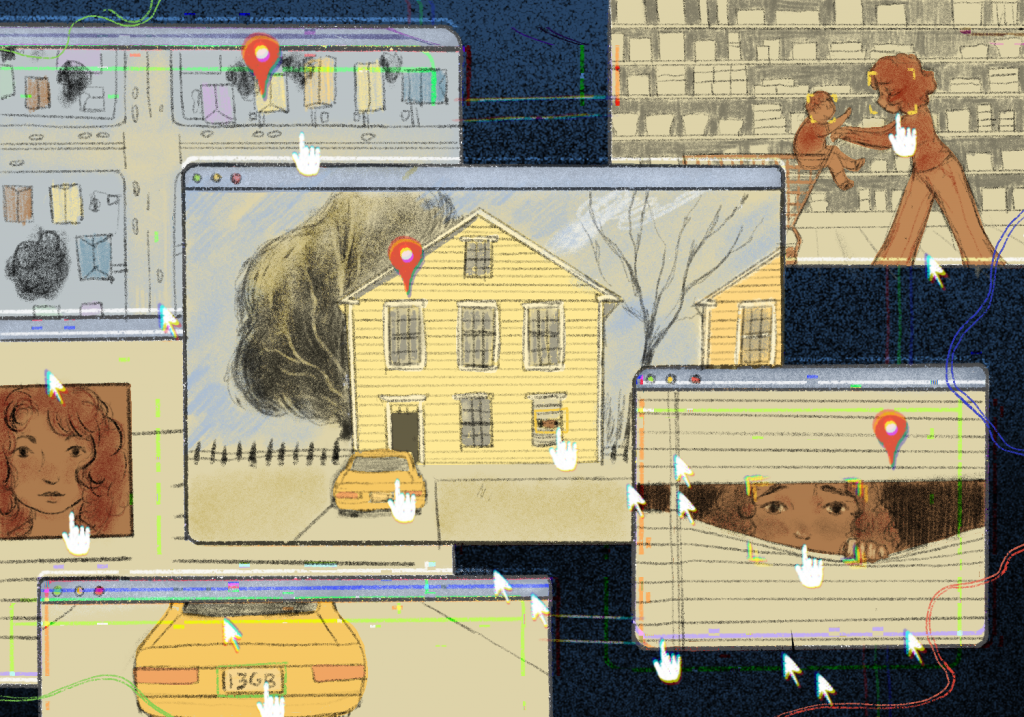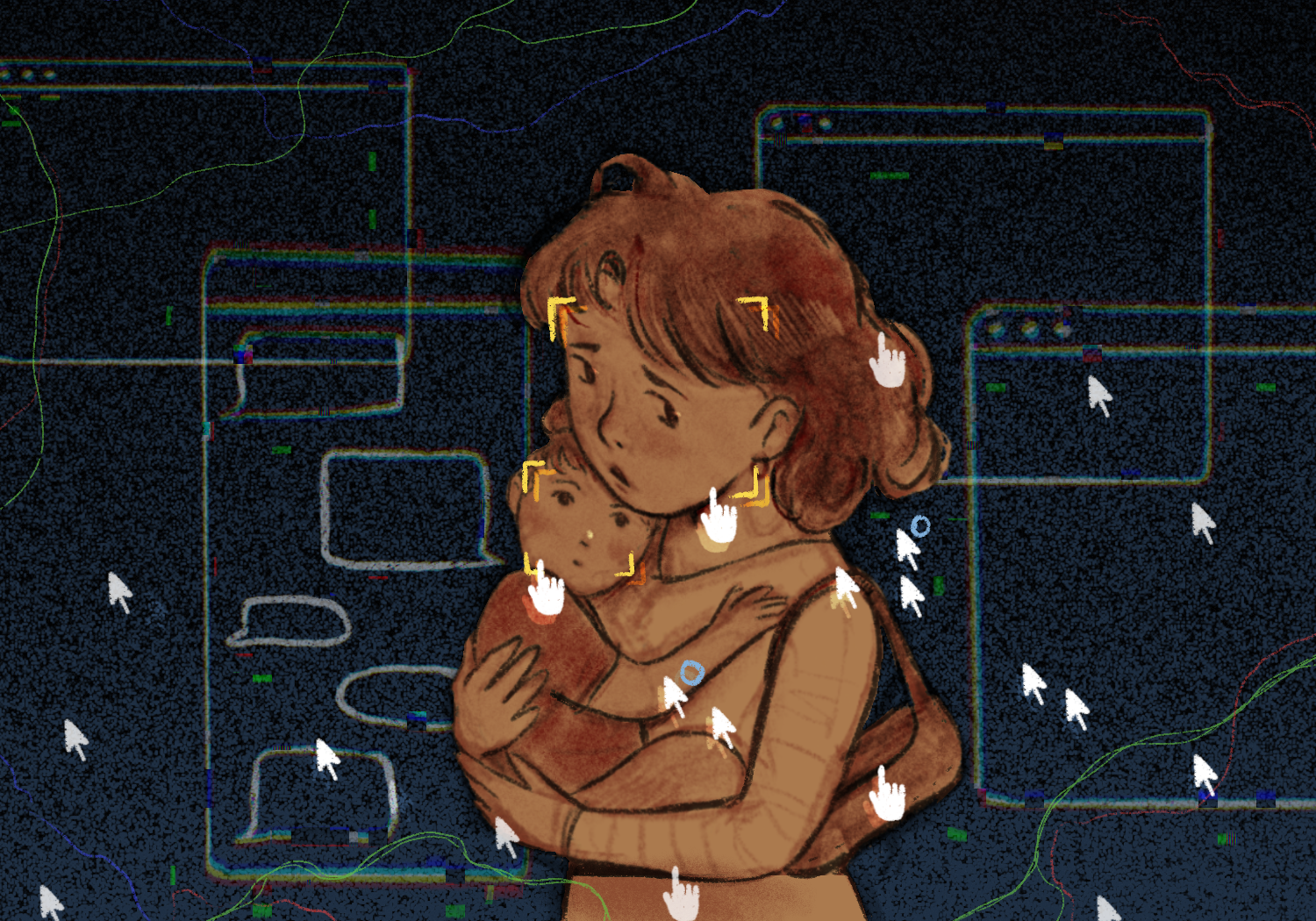On a sleepy Monday night right after Christmas, a post surfaced in a Facebook group frequented by conservatives in the town of Parker, Colorado: “Every day in our group I’ll be posting the name and address of unelected, non-law enforcement officers who think they can flex muscles in business. We’ll see how strong they are at their homes.”
The post, referencing the two officials at the state’s Department of Public Health and Environment who were largely responsible for Covid-19-related business closures, was written by Mark Hall, co-chair of the Parker Republicans. Alongside a disclaimer that he was not advocating for violence, he wrote: “Take this information and make your own decisions.” Following a deluge of backlash, he apologized the next day.
Hall’s publication of specific individuals’ private information is an example of a digital practice known as “doxxing,” which originated in the 1990s with the rise of hacker culture. Doxxing became lingo for publicly dropping “docs,” or documents with personal information, as a form of revenge. In a year consumed by a raging pandemic, a boiling summer of long overdue action on racial injustice, and a seditious storming of the US Capitol, social media platforms cemented themselves as centers of discourse and information. In our political and cultural zeitgeist, terms like “deplatforming,” “cancel culture,” and “doxxing” have come to the forefront. While doxxing has mostly remained on the fringes of mainstream digital practice, it has become oddly bipartisan in its use. Just as a public health official’s home address might be disseminated by a conservative flaying mask mandates, an incoming college student might have her admission offer revoked after an old video full of derogatory slurs is circulated online. At face value, this may seem like a flawed comparison: Of course, people should be held accountable for past racist statements, while public health officials trying to curb a deadly pandemic should be protected. If doxxing becomes increasingly popular as a form of digital engagement, however, no one stands to gain. As a defining privacy concern of the internet era, doxxing poses a unique threat to women and minority communities and warrants the adoption of targeted legislation.
Doxxing as a digital practice is not limited to Facebook posts in private groups or tweets seen by a limited audience. The same month that Hall exhorted his followers to “make [their] own decisions,” a New York Post article was published profiling a paramedic who was selling content on OnlyFans, a popular subscription platform for sex workers, to supplement her income during the pandemic. The article included her name and EMS company, despite her request for anonymity. The Post’s article was lambasted online, notably by Representative Alexandria Ocasio-Cortez (D-NY14), who has been doxxed herself. By digitally linking the paramedic’s name, photos, social media handles, and workplace, the Post article not only violated journalistic standards of ethics, but also infringed on her explicit requests for privacy.
While liberals and conservatives alike might be victimized by doxxing, individuals from historically marginalized backgrounds bear the brunt of the security concern. Thirty-five percent of Americans who report online harassment attribute it to their race, religion, gender, or sexual identity. In “Gamergate,” a watershed moment of gender-based cyberharassment, several women in the video game industry were doxxed, hacked, and threatened with rape and murder, forcing them to flee their homes. In another devastating example, online vigilantes on Reddit speculated that a missing Indian-American student at Brown University, Sunil Tripathi, was one of the Boston Marathon bombers after the FBI released grainy surveillance video of the attack. His information was doxxed, his home was flanked by news vans, and his family members’ cell phones were barraged with calls from strangers demanding justice. A week later, police found Tripathi’s body near India Point Park in the Seekonk River. Unbeknownst to both his family and Reddit users, Tripathi had committed suicide prior to the accusations.

Doxxing, however, is not to be conflated with using the internet as a measure of accountability. The sleuthing prowess of the internet can undoubtedly be harnessed for good: After domestic terrorists besieged the US Capitol in January, the FBI relied on the public to help identify individuals who participated. The unprecedented connectivity of users on social media allowed for the rapid collection of rioters, names, hometowns, and workplaces. Several individuals lost their jobs, with employers quick to release statements condemning the violence and distancing themselves from the mire. Anti-doxxing initiatives do not have to sacrifice this potential.
Indeed, the goal of anti-doxxing legislation should not be to “cancel” cancel culture, but rather to implement legal safeguards that distinguish between information shared for transparency or accountability reasons and information shared as a result of malicious intent. Congress has been slow to consider legislation banning doxxing, consistent with its general pace and approach to issues of online policy.
Given the limited purview of Congress’s authority on state matters, the push for anti-doxxing laws will likely need to come from state legislatures. In January 2021, Nebraska State Senator Adam Morfeld introduced legislation that would criminalize the posting of identifying information with the intent of promoting or participating in the bodily injury, stalking, or death of the victim, or that which is perpetrated with “reckless disregard” for such potential harm. In addition to the provisions included in the Nebraska bill, prospective laws should distinguish between the release of public versus private information. For example, the law should not protect someone who posts racist epithets on a public Twitter account from having his or her name reposted. However, the law might prohibit the publication of his children’s names, schools, and addresses, which are likely to have been obtained illicitly. Such boundaries are admittedly nebulous, especially when the resulting harm is economic or psychological in nature. However, such laws would make doxxing akin to free speech or libel matters, allowing courts to adjudicate disputes that arise over intent and method.
The cancel culture war, waged most fiercely in the trenches of the internet, is only just beginning. Amidst a national reckoning on anti-Black racism, a misinformation maelstrom that brought the US Capitol to its knees, and a deepening partisan rift, the desire to hold people accountable will and should be part of our discourse. Nevertheless, we must seriously pause and evaluate what it would mean to unleash digital detectives to hunt for the most private and vulnerable pieces of people’s lives in an effort to punish perceived wrongs—and consider whether such retributive “justice” is even justice at all.
